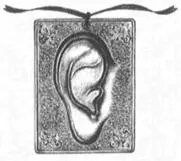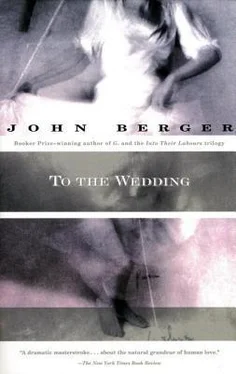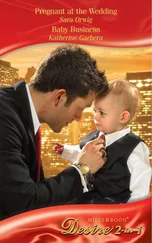John Berger - To the Wedding
Здесь есть возможность читать онлайн «John Berger - To the Wedding» весь текст электронной книги совершенно бесплатно (целиком полную версию без сокращений). В некоторых случаях можно слушать аудио, скачать через торрент в формате fb2 и присутствует краткое содержание. Год выпуска: 2011, ISBN: 2011, Издательство: Knopf Doubleday Publishing Group, Жанр: Современная проза, на английском языке. Описание произведения, (предисловие) а так же отзывы посетителей доступны на портале библиотеки ЛибКат.
- Название:To the Wedding
- Автор:
- Издательство:Knopf Doubleday Publishing Group
- Жанр:
- Год:2011
- ISBN:978-0-307-79420-8
- Рейтинг книги:3 / 5. Голосов: 1
-
Избранное:Добавить в избранное
- Отзывы:
-
Ваша оценка:
- 60
- 1
- 2
- 3
- 4
- 5
To the Wedding: краткое содержание, описание и аннотация
Предлагаем к чтению аннотацию, описание, краткое содержание или предисловие (зависит от того, что написал сам автор книги «To the Wedding»). Если вы не нашли необходимую информацию о книге — напишите в комментариях, мы постараемся отыскать её.
To the Wedding — читать онлайн бесплатно полную книгу (весь текст) целиком
Ниже представлен текст книги, разбитый по страницам. Система сохранения места последней прочитанной страницы, позволяет с удобством читать онлайн бесплатно книгу «To the Wedding», без необходимости каждый раз заново искать на чём Вы остановились. Поставьте закладку, и сможете в любой момент перейти на страницу, на которой закончили чтение.
Интервал:
Закладка:
32

The wedding in Gorino hasn’t taken place yet. But the future of a story, as Sophocles knew, is always present. The wedding hasn’t begun. I will tell you about it. Everybody is still asleep.
The sky is clear and the moon almost full. I think Ninon, staying in the house of Gino’s aunt Emanuela, will be the first to wake, long before it is light. She will wrap a towel round her head like a turban and wash her body. Afterwards she will stand before the tall mirror and touch herself as if searching for a pain or a blemish. She will find none. She holds her turbaned head like Nefertiti.
As the river Po approaches the sea, it becomes two hands, its waters dividing into ten fingers. Yet it depends a little on how one counts. One could say four hands with twenty fingers. The waters change all the while and stay the same only on the map. The land is often lower than the river or the sea. In places where the land has been drained, tomatoes and tobacco have been planted. On the wilder strips, plants grow with little pods instead of leaves: antediluvian plants, the cousins of seaweed. The area is sparsely populated — for it is scarcely a place. The village of Gorino is on the branch of the river which is called the Po di Goro.
The ancients believed that the first act of creation was the separation of earth and sky and this was difficult, for earth and sky desired one another and did not want to separate. Around Gorino the land has become water to stay as close as possible to the sky, to reflect it as in a mirror.
The houses where the people of the Po delta live are small and makeshift. Salt eats away their building materials. Many of them, instead of a garden, have a net stretched on a frame as large as the house, and this net can be lowered by a winch to catch fish. The sky is full of birds — cormorants, grebes, terns, herons, ducks, little egrets, gulls, who eat fish.
In Emanuela’s small house, Federico is the next one to wake and, as the waters reflect the first light, he starts to carry benches and trestles and wooden planks out of the house into an adjoining field where there are three apple trees. Later he will fetch Gino’s market parasols with their wooden spokes, each one with a diameter of over three metres.
Aunt Emanuela, her hair in curlers, is making coffee in the kitchen. Today’s the day! she says, smoothing the ground coffee flat with a teaspoon in the machine, today’s the day!
Through the dark kitchen window shine the distant headlights of a vehicle approaching along the dyke, above the roof of the house, like an airplane coming in to land.
Better be Roberto, Federico says to his sister, we should start cooking soon, it needs a good four hours even five to cook a lamb properly.
Roberto knows his job, Federico.
Best butcher in Modena, Gino told me, his scaloppini are leaves from the Bible!
I’m glad Gino didn’t sleep here, one of you is enough.
You cook your eels, Emanuela, and look after the women.
When I see her, she’s so beautiful I want to weep.
Who told you? demands Federico.
Told me what? I’m saying she’s beautiful.
Then don’t talk about weeping.
What’s the matter with you, Federico?
Begin the eels, woman.
When the fire’s hot enough I’ll begin, not before.
A klaxon sounds, the van arrives and Roberto shouts from the driving seat to Federico standing in front of the house: Where’s the kitchen, Count?
In the next field. Come and have some coffee first.
The van has woken up the other women: Leila, Marella and Zdena. Federico was the only man to sleep in the small house that night. He slept on the sofa. How the others managed he doesn’t know. He only knows that his sister insisted upon giving Ninon her letto matrimoniale. Tonight the fiancée must be alone, she said.
When the sun is high enough above the horizon to light the grass on top of the dyke, but before there are any shadows in the village square, the other market friends of Gino will arrive in their vans: Luca, the pastry cook; Ercole, the jeweller who also sells spices; Renzo, the cheese merchant with his nana; Gisella who trades in all the silks of Asia; and Scoto who sells only watermelons and listens to them as if they were oracles. Streetsellers, whether we sell tamata or melons, scarves or meat, have certain things in common. We all know how to get attention, how to joke, how to get up early and how to set ourselves up anywhere where there’s a chance of a stream of people. When we get tired, we long for silence; yet silence we fear, as actors fear empty theatres. With my white stick I wander among Gino’s friends and feel at home.
They have parked the vans in a circle on a patch of land which makes me think of the basement where Zdena went to buy her birdsong instruments in Bratislava. This one is an open-air basement and the ceiling is the sky, but it’s lower than the sea and lower than the village square where the church and the war memorial stand. In the middle of the circle Roberto, the butcher, has begun cooking the lamb. The carcass is turning on a spit over a massive brasier of wood embers. From time to time he bastes the meat, with a spoon the size of a hat, from a bucket of marinade he has prepared. Federico occasionally works a pair of bellows. A ring of men in immaculate white shirts watch and commentate. The roasting meat smells like every feast day since feasts began. The women chatting in the vans are putting the final touches to their hats and make-up. In the house Leila has been working on the bride’s dress for two hours.
The marriage service in the church of Gorino will take place at 11:30 a.m.
Afterwards a hundred people, wedding guests and villagers, will be waiting in the square. Opposite the church porch is a massive plane tree. Around it have been arranged tables with dozens of sparkling glasses and, along one edge, dark green bottles of vino spumante . Federico is systematically turning the glasses the right way up. Certain men are born hosts and they find it difficult to be either guests or spectators. Such men often lead rather solitary lives — gangsters, deep-sea fishermen, cattle dealers. Federico is a solitary. He only put on his splendid pinstripe suit when he saw the curato go into the church and the organ started playing. Now that the ceremony is over, he pours sparkling wine into the glasses, for he knows he can do it better than either of the waiters. They spill too much.
Kids from the school have come to watch. They have never seen so many strangers in the village, not even when a stray coach arrives in the summer and the tourists get out to look at the lighthouse. Today there are women in hats like actresses wear on television. Today there are men with roses in their buttonholes. And there is jewellery everywhere.
What are they waiting for?
Nothing special.
Did you see the banquet? I went down to the tables behind the house. There’s everything you can imagine — melons and prosciutto and asparagus—
Gelati?
The sheep is cooking.
It’s a lamb.
What are they waiting for?
It’s just beginning, this is what weddings are like.
How do you know?
My sister got married. It goes on all night, all night.
One of the boys will make a fucky-fuckie sign with his fingers. The boy whose sister got married shoves his open hand up against the other one’s nose.
Friends of Ninon and Gino are standing by the church porch and their fists are full of rice to throw over the newlyweds as soon as they appear. The rice probably comes from Vercelli, the town from which Jean Ferrero’s parents emigrated in the 1930s.
Читать дальшеИнтервал:
Закладка:
Похожие книги на «To the Wedding»
Представляем Вашему вниманию похожие книги на «To the Wedding» списком для выбора. Мы отобрали схожую по названию и смыслу литературу в надежде предоставить читателям больше вариантов отыскать новые, интересные, ещё непрочитанные произведения.
Обсуждение, отзывы о книге «To the Wedding» и просто собственные мнения читателей. Оставьте ваши комментарии, напишите, что Вы думаете о произведении, его смысле или главных героях. Укажите что конкретно понравилось, а что нет, и почему Вы так считаете.












